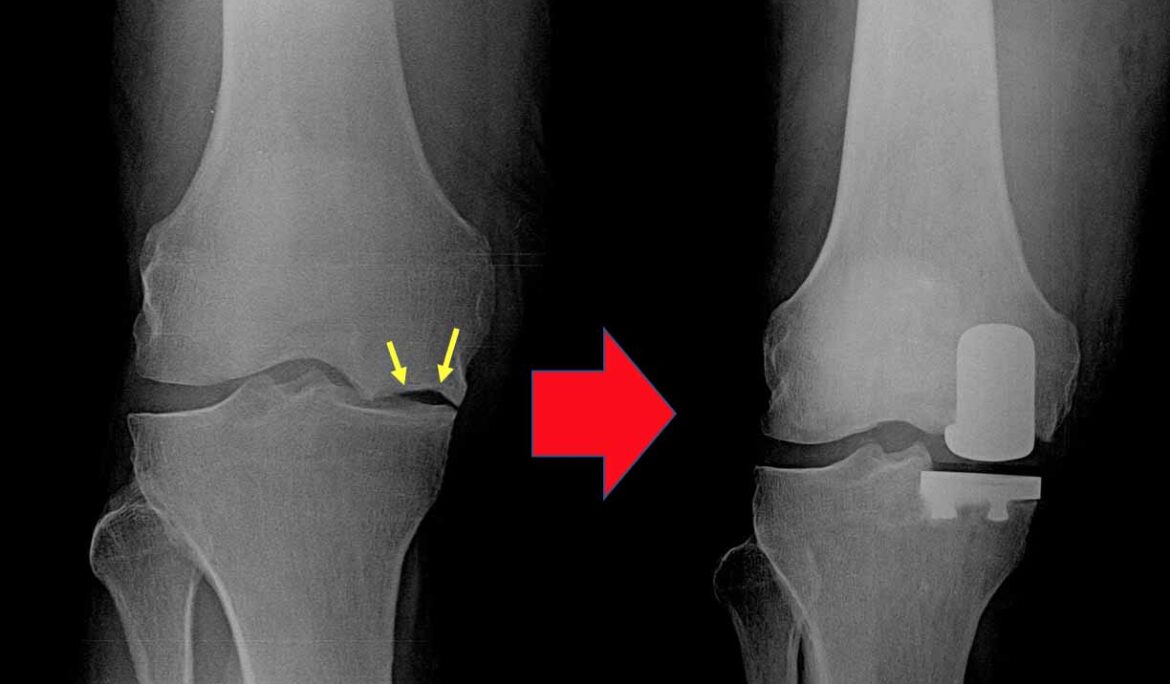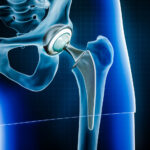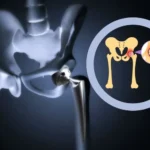Dr. Simon Thomas is one of of the best Orthopedician in Delhi, explains Partial knee replacement, also called unicompartmental knee arthroplasty, is a knee surgery that treats the parts of the knee affected by arthritis or other degenerative conditions. This surgery is a good treatment alternative for patients with localized knee damage, offering a lot of benefits without going for a complete total knee replacement.
The knee is a complex hinge joint that comprises three compartments: medial (inner), lateral (outer), and patellofemoral (front). The medial side is the inner side of the joint, closer to the body’s midline. It constitutes one of the three compartments of the knee joint, with the others being lateral and patellofemoral. The lateral side represents the outer portion of the joint, situated away from the midline.
In partial knee replacement, the surgeon selectively addresses the damaged compartment, leaving the unaffected areas intact.
Indications for Partial Knee Replacement
Partial knee replacement is recommended for patients with osteoarthritis or other degenerative conditions that primarily affect one compartment of the knee. Indications include:
- Localized Arthritis: When arthritis is confined to one compartment, sparing the others from significant damage.
- Preservation of Healthy Tissue: When a portion of the knee remains unaffected, opting for a partial replacement allows the preservation of healthy tissue and bone.
- Limited Movement: Patients experiencing reduced movements and discomfort in a specific compartment may benefit from targeted intervention.
Partial Knee Replacement Surgery in Delhi
Partial knee replacement surgery involves a procedure developed to replace the damaged part with a prosthetic implant. Before surgery, an assessment of the patient’s medical history, physical condition, and X-rays to determine the suitability for partial knee replacement. The surgery is performed under either anaesthesia to ensure the patient’s comfort and help them manage their pain during the operation.
A smaller incision is made compared to total knee replacement, reducing trauma to surrounding tissues. This is a minimally invasive surgery method. After the small incision cut, the damaged portion of the joint, and connected arthritic tissue (if needed), is removed. The bone is then reshaped for prosthetic implant.
Now the customized prosthetic implant is fitted into the prepared space, mimicking the natural joint’s movement and function. Once the implant is securely in place, the incision is closed, and the surgery pointis carefully sutured.
Benefits of Partial Knee Replacement:
Partial knee replacement offers several advantages over total knee replacement, making it an appealing option for eligible candidates:
- Faster Recovery: The smaller incision and targeted approach contribute to a quicker recovery, allowing patients to resume daily activities sooner than with total knee replacement.
- Preservation of Healthy Tissue: By selectively addressing the damaged compartment, healthy tissues and bone in unaffected areas are preserved, potentially leading to better long-term outcomes.
- Reduced Postoperative Pain: The minimally invasive nature of the procedure often results in less postoperative pain and a more comfortable recovery experience.
- Improved Range of Motion: Patients may experience improved range of motion in the affected compartment, enhancing overall joint function.
- Lower Risk of Complications: The focused nature of partial knee replacement may reduce the risk of certain complications associated with total knee replacement.
Considerations and Limitations:
Not every patient qualifies as a suitable candidate for partial knee replacement. This surgery proves most effective for those with localized knee damage and preserved joint integrity.
In few instances, arthritis advance to other compartments of the knee over time, necessitating additional interventions. This underlines the importance of thorough patient evaluation and ongoing monitoring. Patients undergoing this procedure require careful monitoring to assess the ongoing health of the joint and promptly address any potential issues that arise during the recovery process.
Additionally, while the recovery period for partial knee replacement is generally faster compared to total knee replacement. Physical therapy and exercises are esential in restoring strength and function to the knee.
Side-effects of Partial Knee replacement surgery
Partial knee replacement is a safe and effective surgery for individuals with localized knee damage. However, like any surgery, it can have certain side effects and complications. It’s important to note that the occurrence and severity of these side effects can vary among individuals. Here are common side effects related with partial knee replacement:
Pain and Discomfort: Pain and discomfort are common in the immediate postoperative period. This is managed with pain medicines prescribed by the orthopedic surgeon in Delhi
Swelling and Bruising: Swelling and bruising around the surgery are also common and part of the normal healing process. Elevation and ice application help reduce swelling.
Temporary Restriction: Individuals experience temporary limitations in their range of movement following surgery
Infection: While the risk is low, there is a possibility of infection. Robotic knee surgeon takes precautions to minimize this risk, and patients are prescribed antibiotics during the postoperative period.
Blood Clot Formation: There is a risk of blood clot formation after surgery. Patients are prescribed blood thinners and encouraged to move and walk to prevent clot formation.
Nerve or Blood Vessel Damage: While it is very rare, but there is a chance for nerve or blood vessel damage during surgery.
Partial knee replacement stands as a great surgery alternative for addressing knee damage, offering a middle ground between conservative treatments and total joint replacement. The decision to opt for partial knee replacement involves a lot of examinations.
You can always take a second opinion from a top knee surgeon in Delhi before opting for a knee replacement surgery, wheather it is partial replacement or total knee replacement.













